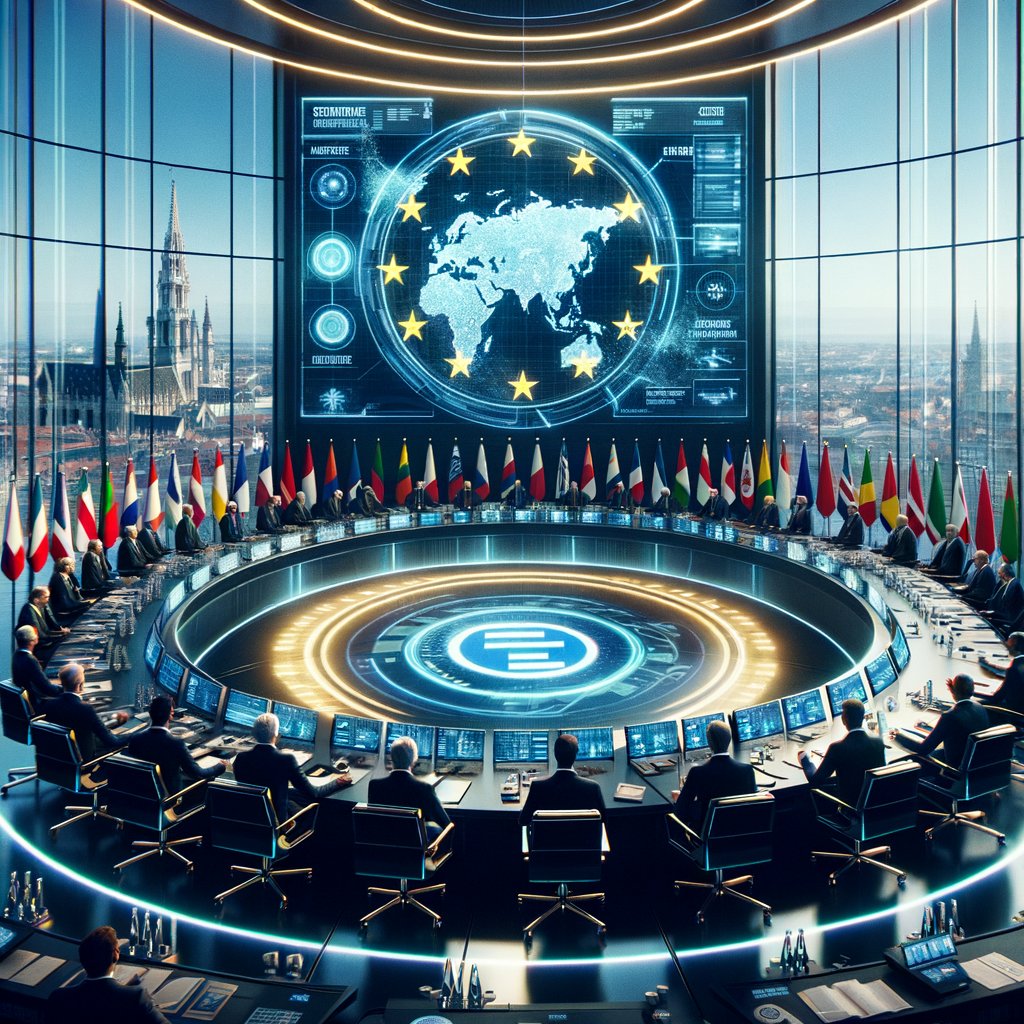Image created by AI
European Union Grapples with Defense Strategies Amid US Uncertainty
In a pivotal moment for European security, EU leaders convened in Brussels for an urgent summit aimed at reinforcing their defense strategies and bolstering support for Ukraine. This gathering marks the first since President Donald Trump’s controversial decision to suspend military aid and halt intelligence sharing with Kyiv, actions that have thrown US-European alliances into uncertainty.
The summit, narrated by the unity between EU Commission President Ursula von der Leyen and European Council President Antonio Costa, underscored a "show of support for Ukraine," as described by Al Jazeera’s Natacha Butler. The focus was crystal clear; the European Union was poised to step up and fill the void left by wavering US support.
Amid the chorus of solidarity were complex undertones regarding the indivisibility of the 27-member bloc on the issue. Several EU leaders advocated vigorously for heightened military budgets and additional support mechanisms for Ukraine. Notably, Polish Prime Minister Donald Tusk proclaimed, "Europe as a whole is truly capable of winning any military, financial, economic confrontation with Russia. We are simply stronger." However, concerns lingered that pro-Russian Hungarian Prime Minister Viktor Orban might obstruct these united efforts due to his alignment with Trump's policies.
The summit also spotlighted potential new shifts in German leadership with Friedrich Merz and profound proposals from French President Emmanuel Macron. Macron did not mince words when addressing the imminent threats posed by Russia, urging readiness irrespective of US involvement. His proposal for dialogue on leveraging France’s nuclear capabilities to shield Europe from Russian hostilities stirred significant discourse and was met with openness from Poland and the Baltic states, albeit dismissed by Russia as "extremely confrontational."
On the financial front, the European Commission proposed allowing member states fiscal leeway on defense spendings, with a groundbreaking suggestion to jointly borrow up to 150 billion euros to invest in military capacities. This move reflects a strategic pivot towards greater European self-reliance, amid historical over-reliance on US military support, encapsulated by the startling statistic that Washington contributed more than 40 percent of military aid to Ukraine in the previous year.
Adding to the geopolitical drama was the reaction from Russia to a peace initiative by British Prime Minister Keir Starmer and Macron, aiming for a temporary truce between Russia and Ukraine, which Russia promptly rejected. Further complicacies emerged as US Secretary of State Marco Rubio described the situation in Ukraine as a “proxy war” between the US and Russia, revealing the layered global stakes involved.
The Brussels summit thus not only symbolized a significant juncture for EU defense and foreign policy strategies but also a test of the EU’s resolve and unity in navigating the choppy waters of international diplomacy, particularly in the shadow of a potentially receding American security umbrella.










